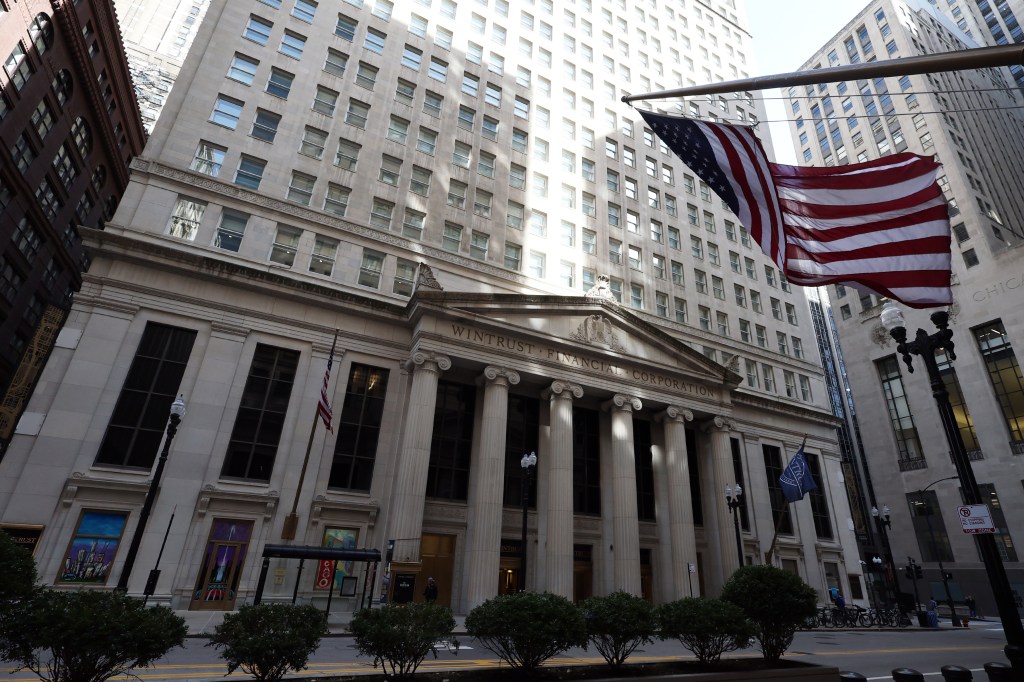Twenty-one years ago, when Jamie Dimon sold Chicago’s Bank One, then the sixth largest U.S. bank, to JPMorgan Chase and forged the nation’s largest bank in New York, veterans of Chicago’s financial scene worried that this city would become a banking backwater.
Indeed, in the years that followed, local bank after local bank was sold to out-of-town lenders. The city’s second largest lender, LaSalle Bank, owned by a Dutch parent but nonetheless operated more or less autonomously by CEO Norman Bobins, was subsumed by Charlotte, North.Carolina-based Bank of America in 2007 thanks mainly to the desperate cash needs at the time of its owners in the Netherlands.
Banks that grew to scale in the wake of Bank One and LaSalle’s disappearances and ultimately sold to out-of-area companies included MB Financial, PrivateBank and First Midwest. Those names are history now, and their operations are parts of Cincinnati-based Fifth Third, Canada-based CIBC and Evansville, Indiana-based Old National, respectively.
And since native New Yorker Dimon paved the way for his triumphant return to NYC following four eventful years in Chicago via the sale of Bank One, there hasn’t been a locally based bank among the top three in town.
Until now.
Slowly and painstakingly, Wintrust Financial, based in Rosemont but also occupying one of LaSalle Street’s most impressive temples of finance, has grown to become the third largest bank in the six-county Chicago area when measured by deposits, according to Federal Deposit Insurance Corp. data released last month.
With $49.5 billion in local deposits as of June 30, Wintrust’s 8.6% of the market trailed just Chase (20.1%), which has retained its leading local market share since the Bank One deal, and BMO (18.3%), held by a Toronto-based parent, which acquired the old Harris Bank way back in 1984.
Wintrust in the past year leapfrogged Bank of America, the longtime No. 3 in the Chicago market.
In an era in which Chicago’s sputtering economy has been an unfortunate storyline, the emergence of Wintrust as a major player on the local banking scene counts as some sorely needed good news. Unlike New York and Los Angeles, whose economies are dominated by single industries, the Chicago area’s economy for as long as anyone can remember has been defined by its diversity.
This market is home to lots and lots of midsize, often family-owned companies whose names few recognize and that make products and provide services in a vast array of decidedly unsexy industries. That’s why so many out-of-town banks have paid nosebleed prices to acquire locally-based lenders and barrel into this market. Those midsize companies rely mainly on banks for their financing, and Chicago long has been (and continues to be) one of the most fragmented banking markets in the country.
In other words, there’s opportunity here for banks in ways that don’t exist in many other U.S. markets.
And that’s been to the benefit of Wintrust, which founder Edward Wehmer launched in Lake Forest in the early 1990s with a predominantly suburban focus but has taken full advantage of market disruption through recessions and fallout from other bank mergers to become a true Chicagoland powerhouse.
Wintrust is the last remaining locally controlled commercial bank with scale. Its growth confirms what we’ve long believed — that there are many companies and consumers who value a bank where the decision-makers are local and available.
And symbolically for the nation’s third largest city, it’s important to have banks based here that are relevant, both in our city and in the industry. Wintrust clearly is one. The other, Chicago’s Northern Trust, focuses mainly on serving the affluent and the global investment management industry and is one of Chicago’s most important publicly held corporations as well.
We spoke to Wintrust CEO Tim Crane, who said of reaching the top three in local market share for the first time, “We certainly are proud of it.”
As well he should be.
Nearly three-quarters of Wintrust’s branches are in northern Illinois, but the bank has a significant presence in Wisconsin and Michigan too. “We like the Midwest,” Crane said.
“We think there’s a place for community banking,” he added. “We don’t think you have to sacrifice capabilities and sophistication” while remaining high-touch.
Amen.
Most certainly, there’s a place in the financial ecosystem for the behemoths of the industry. Chase and Bank of America, among others, have invested heavily in their systems over the years, and their customers benefit from the efficiency.
Likewise, community banks serving small towns and markets that the big guys overlook play a crucial role — one that’s gotten more difficult over the years to maintain.
But while we heartily endorse a robust market open to all, there’s no substitute for a homegrown bank, both for offering access to the ultimate decision-makers when you’re applying for a loan or need help with a problem and for the hometown pride that comes with the success of one of your own.
So, while acknowledging tomorrow is never promised when it comes to locally based and publicly held companies navigating waters in which acquisitive sharks always are lurking, we are rooting for Wintrust to soldier on as Chicago’s commercial and retail banking flag bearer.
As he must do as a fiduciary for Wintrust’s shareholders, Crane is making no promises. But, he said, “There’s a lot of share left for us to get.”
Some competition for Dimon. But music to our ears.
Submit a letter, of no more than 400 words, to the editor here or email letters@chicagotribune.com.
